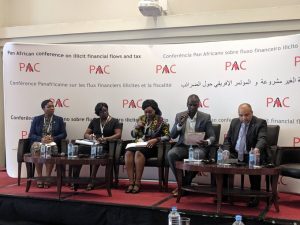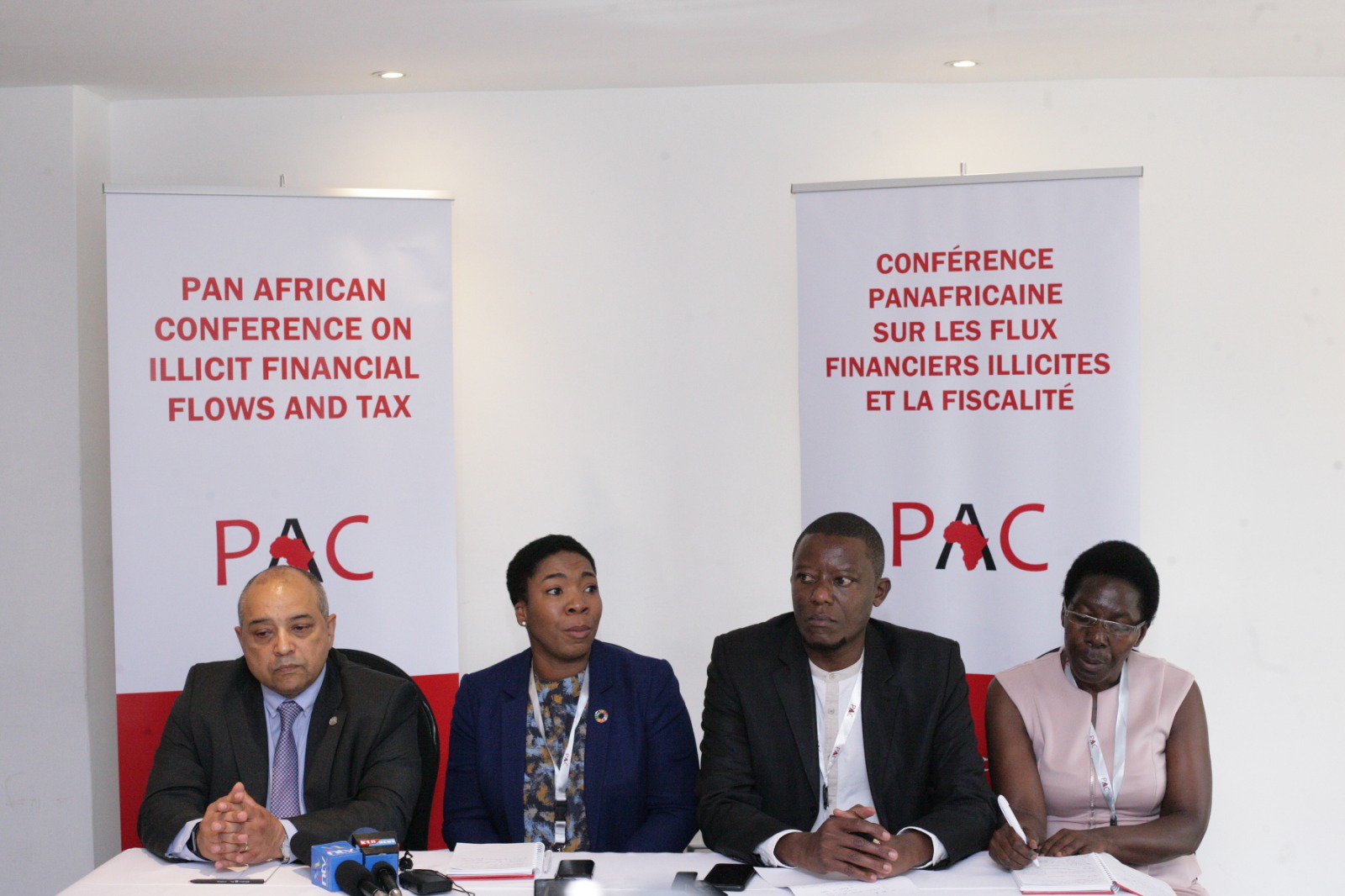TRANSPARENCY: CoST Uganda Commissions 2nd Infrastructure Transparency Index
By Patrick Jaramogi
Nairobi Kenya
African nations are strategizing on how best to start taxing virtual foreign firms, like Uber, that evade tax.
The over 1,000 delegates are deliberating on how best the African governments can start taxing digital products at the on-going three day 7th Pan African Conference on Illicit trade that has opened at the Crowne Plaza, Hotel in Nairobi, Kenya.
The Pan Africa Conference in Illicit Financial flows and Taxation is an Annual convening that brings together key stakeholders involved in efforts to curb IFF and enhance domestic resource mobilisation in Africa.
The platform draws together actors from governments, civil society, International organisations, legislators, media, academia and national campaigners to take stock of the current state of play Illicit Financial Flows agenda in Africa as well as progress made through global, regional and country level initiatives.
The conference seeks also act as a platform to articulate problems and propose solutions and explore opportunities for collaboration and common action
This year’s Conference theme is Trends, Challenges and Opportunities for Domestic Revenue Mobilisation in Africa.
Speaking as a panelist at the event, Uganda Revenue Authority (URA) Commissioner General, Doris Akol, called for the harnessing of data by revenue collecting bodies in Africa if they are to clamp down on digital economies.
“It is difficult to identify who is the beneficiary of the value, or who is the creator of the value,” she said. “African revenue collectors will need to harness data if they are to clampdown on digital companies. We need to move beyond what we know and start thinking about identifying new parameters, if we are to tax digital companies operating in our countries,” she said.
Commenting on how best to tax digital firms like Uber, Amazon, and Facebook that operate virtually, the URA boss said: “Where payments are being paid in servers in Thailand, and goods dropped by drones in South Africa. We need to think fast how best to handle these new global challenges of taxing digital transactions,” said Akol.
She said: “the disconnect is between who creates the value and or who benefits from the value. This is what we need to draw lines and see who should be taxed?, the creator of the value, or the beneficiary of the value? We need to be pro-active on how to address tax administration.”

Jane Nalunga the Chairperson of the Tax Justice Network Africa (TJNA) Executive Council, also the Country Director for the South and Eastern Africa Trade Information and Negotiation Institute, SEATINI Uganda, called for a common voice from the continent to address the challenge.
“The resources are coming in but being dried up. We need to look at the context of how we get our revenues. The context is changing. It provides opportunities and challenges, it’s a double edged sword,” said Nalunga.
“We need to have a common voice as Africa, on what kind of pass we are going to agree on. There has been tax evasion and tax avoidance, but the situation is getting worse with the coming in of digital economy,” she said. Nalunga said Africa is bleeding and losing a lot of money to virtual foreign firms. “It’s an issue of emergency that needs us to get together as a continent so as to build capacity to address our tax administration,” he said.
PAC 2019 is being co-convened by a number of organisations including; African Tax Administration Forum (ATAF), United Nations Economic Commission for Africa (UNECA), Pan African Lawyers Union (PALU), The African Forum and Network on Debt and Development (AFRODAD), Financial Transparency Coalition (FTC), Global Alliance for Tax Justice (GATJ), Action Aid, Oxfam, Coalition for Dialogue on Africa (CODA) and Trust Africa.
Alvin Musioma, the Executive Director TJNA said it is unfortunate that no figures can be placed regarding the amount of taxes lost due to virtual foreign firms. “We can’t say how much we are losing, because no African country has invested in research to find out how much, for instance we lose in terms of tax evasion from Uber,” said Alvin.
He noted that when TJNA started the initiative 10 years ago, it was as deliberate effort to call it Pan Africa. “It wasn’t by accident, because tax issues are political. When we speak of agenda 63, Africa’s blue print of addressing corruption. Africa is still characterized by the narrative that African can’t develop without external aid.”
“Unless we address the bleeding that the continent is facing, we shall remain stuck.
Logan Wort the Executive Secretary of African Tax Administration Forum (ATAF) said the growth in digital platforms has contributed to new issues. “Digital economy is making us look at taxes differently. Multinational companies are currently engaged in various business transactions, without physical presence such as Uber. How do you tax such businesses?” he asked.
He said Africa can’t rule out digital economies, because they are the future. “We need to think perhaps how African Governments can charge VAT or withholding tax on businesses like Uber,” said Logan.
“There is need to regulate digitalization, so as to enable domestic businesses compete with international organisation. We must learn how to deal with the losses caused by the digitalization.”








